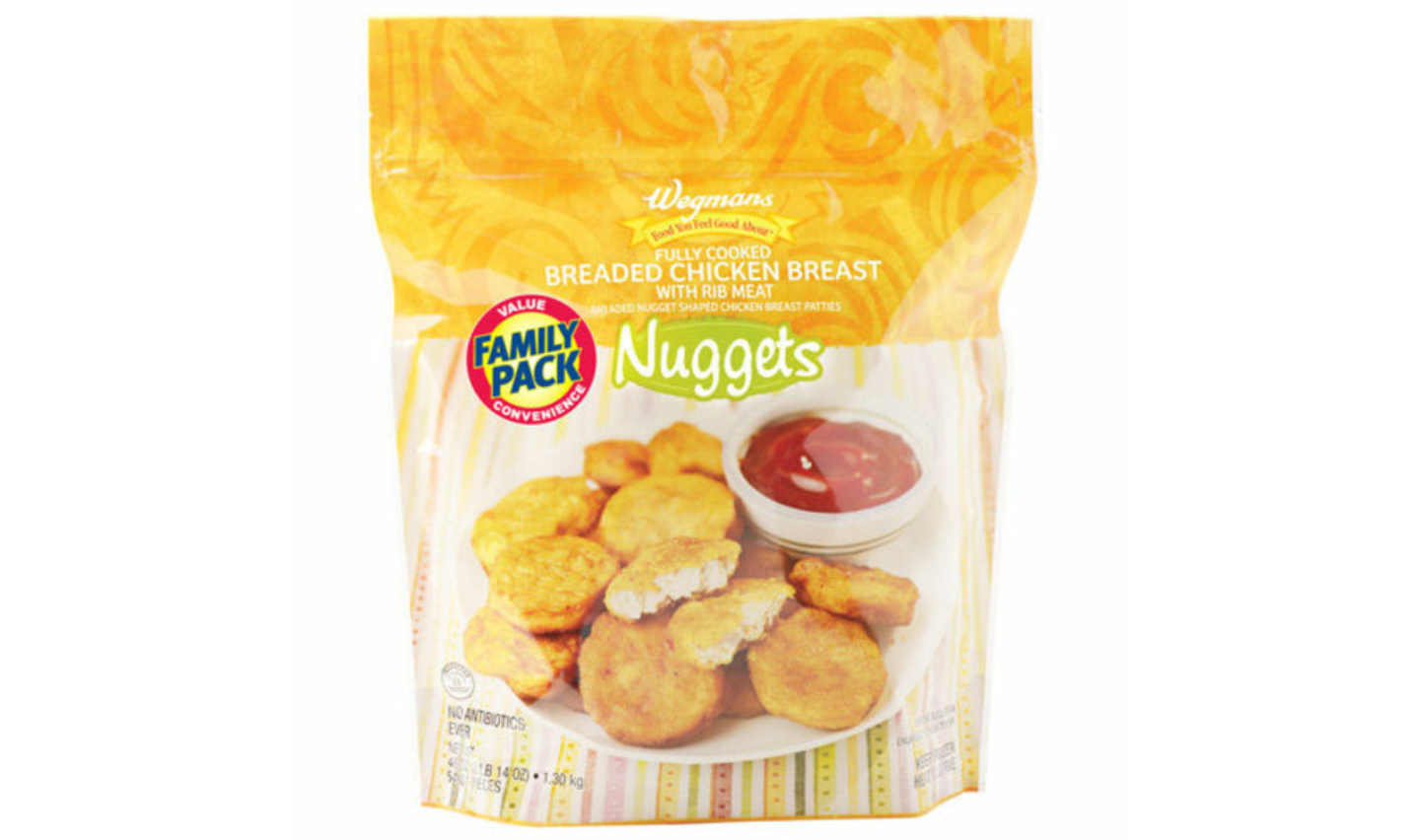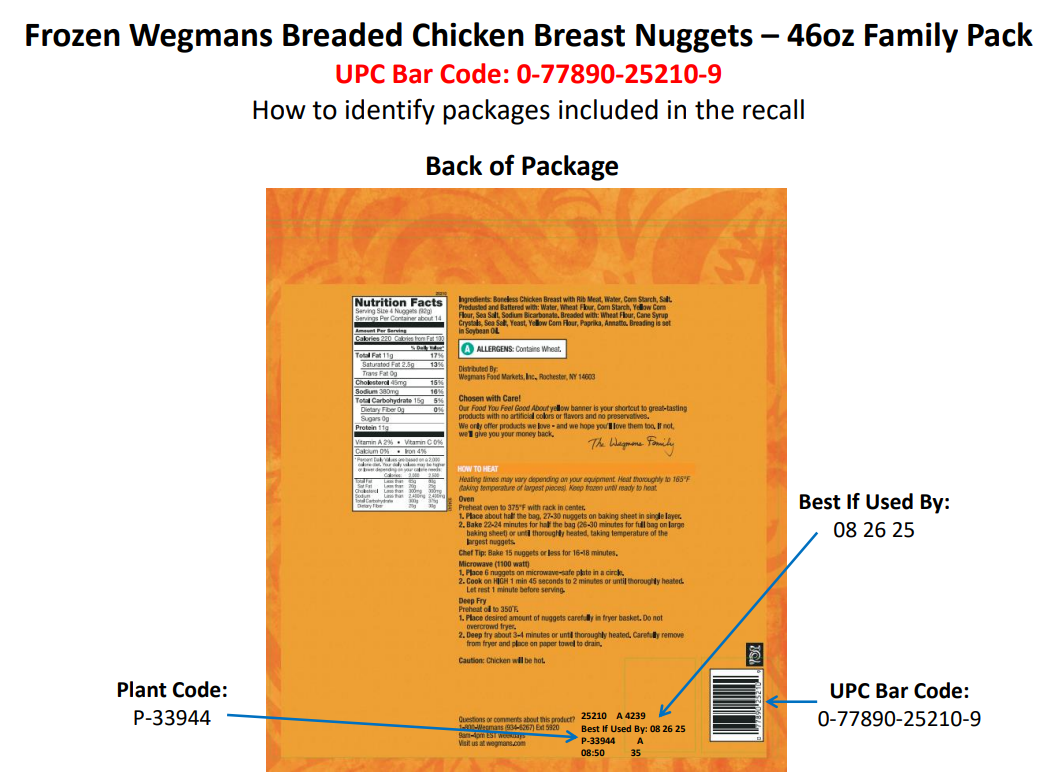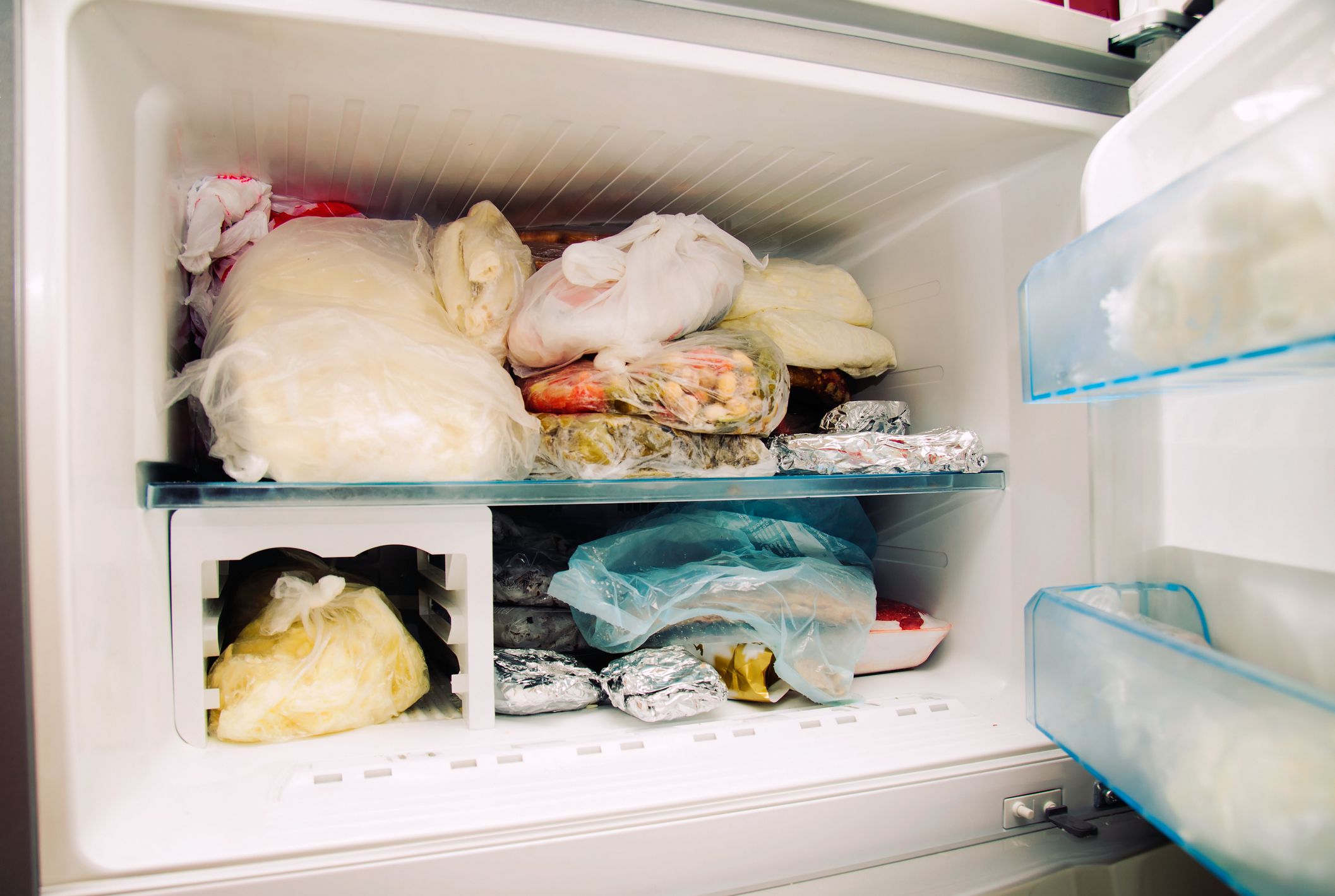Chicken nuggets are a freezer staple. They’re an easy snack or part of a meal that takes almost no effort, something parents especially appreciate. But the U.S. Department of Agriculture’s Food Safety and Inspection Service just issued a public health alert about one brand of frozen chicken nuggets, so it’s time to check your freezer.
Here’s everything you need to know about the situation.
What’s Wrong with the Chicken Nuggets?

The chicken nuggets “may be contaminated with extraneous material,” according to the FSIS. In this case, that means bone fragments. The problem was discovered after numerous consumer complaints, though no injuries have been reported.
What Product Is Affected?

The frozen nuggets are labeled “Wegmans Fully Cooked Breaded Chicken Breast with Rib Meat Nuggets.” They were sold in a 46-ounce family-size bag. Only the product that was produced on August 26, 2024, is affected.
Where Were the Nuggets Sold?

The affected Wegmans Fully Cooked Breaded Chicken Nuggets were only sold at Wegmans Food Markets. They were distributed to locations in Delaware, Maryland, Massachusetts, New Jersey, New York, North Carolina, Pennsylvania, Virginia, and Washington, D.C. Because they were manufactured five months ago, they are no longer for sale on store shelves.
How Can I Tell if My Wegmans Nuggets Are Part of the Alert?

If you have a package of 46-ounce Wegmans Fully Cooked Breaded Chicken Nuggets in your freezer, check the “best if used by” date printed near the barcode. The affected product has a date of “08 26 25” and will also have an establishment number of “P-33944” printed just below it.
What Should I Do if I Have the Wegmans Nuggets?

The FSIS urges anyone with the Wegmans chicken nuggets subject to the health alert not to consume it. Throw the product away, or return it to the Wegmans where you purchased it to get a full refund.
Trending on Cheapism
Why Isn’t This a Recall?

The FSIS has issued a public health alert and not a recall for Wegmans chicken nuggets because the product is no longer available for purchase on store shelves. Since it’s a frozen product, it may still be in consumer’s freezers, however, so a public health alert is warranted.
For more food safety news, sign up for our free newsletters.






